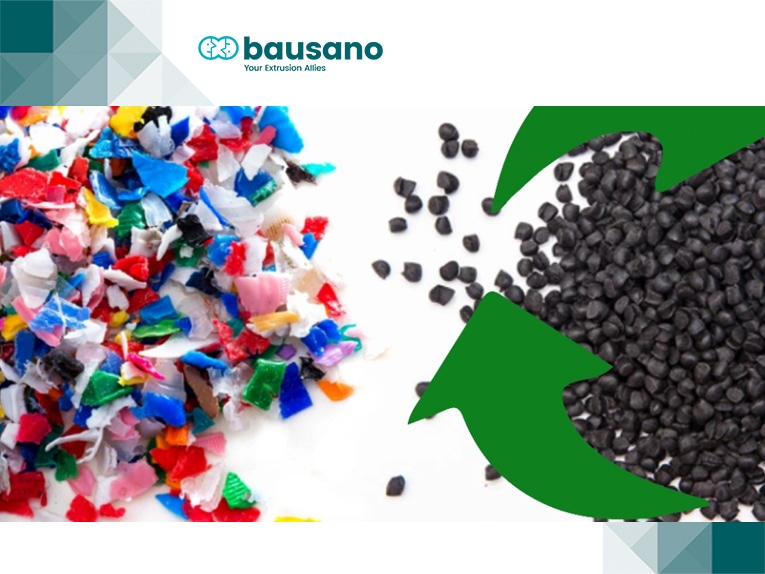
#Industry News
Plastic Recycling and Recovery
Due to its great use in a wide range of applications, plastic is one of the main components of solid waste.
Landfill space shortage and a general growing environmentally conscientious society give processors the opportunity to adopt new technologies for reducing waste and maximizing recycling efforts.
Waste from industrial plastics manufacturing is becoming more and more valuable in times of rising raw materials prices and increased environmental pollution. A lot of materials and plastics are subject to recycling, the most commonly used are PVC and Polyolefins. Urban and industrial waste collection always consists of a mixture of three main plastic components: low-density polyethylene (LDPE), high-density polyethylene (HDPE) and polypropylene (PP).
New extrusion technology and process design are key factors to ensure quality products and investment returns.
Polyvinyl Chloride (PVC) is one of the most used thermoplastic materials with respect to worldwide polymer consumption. Currently, PVC can be processed into a wide variety of products, such as medical devices, pipes, profiles, floors coverings and roofing sheets, through various processes and technologies.
In mechanical recycling, the materials are ground, remelted and reprocessed. The high pressure, temperature and stresses undergone during these steps lead to changes in the polymer structure and properties. This can lead to degradation, crystallization and consequent processability problems, which result from molecular chain scission, branching and crosslinking, or decrease tensile strength and impact strength.
Also, PVC material is subject to degradation. During mechanical recycling, PVC presents a highly sensitive environment, involving continuous changes in its morphological structures and properties during processing. Because of shear stress, the fusion of plastic particles progressively changes the original particle, affecting both physical and mechanical properties of the material; this instability can make it lose quality.
In general, reprocessing HDPE and LDPE makes the materials harder to process due to the decrease of Melt Flow Index (MFI), which significantly increases melt pressure, extrusion torque and complex viscosity.
The challenge with PO recycling is that the melt viscosity of the materials increases considerably, so the production process needs more energy. Higher viscosity could make recycled PO products difficult to extrude, but alloying some materials together, virgin and recycled, can minimize the changes in MFI.





